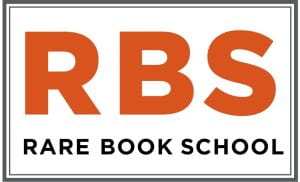Chair & Associate Professor of East Asian Studies, New York University
Landscapes After Modernity: The Place of the Universal Human in the (Digital) Art of Xu Bing & Japan
Time: 11am-12:30pm, October 20
Location: Cobb 310
Please note the unusual time and location!
There is no pre-circulated material for this workshop.
★Co-hosted by the Digital Media Workshop★
★This event is sponsored by the University of Chicago Center for East Asian Studies with support from a Title VI National Resource Center Grant from the United States Department of Education.★

Abstract: In contrast to the landscape of the modern individualized humanist subject, the material ecologies of posthumanism still tend to be framed in terms of a digital ubiquity; the first is finite and located, the second is dispersive and multi-sited (or everywhere). Taking this divide only as a starting point, this working paper takes up what might be thought of as the landscape, or architecture, of the contemporary posthumanist subject. Using especially recent artwork from the Chinese artist Xu Bing, as well as a genealogy of work from Japan, the aim is to outline the material contours of a contemporary posthumanist landscape. At stake are some of our most basic categories, including geopolitical geography (including area studies), global ecology, and the grounds of a universal language.
Presenter: Thomas Looser (PhD in Anthropology, the University of Chicago) is Chair and Associate Professor of East Asian Studies at New York University. His areas of research include cultural anthropology and Japanese studies; art, architecture and urban form; new media studies and animation; critical theory and globalities. Previously a senior editor for the journal Mechademia, and now an editor for Asiascape: Digital Asia, and editorial advisory board member of ADVA, he is the author of Visioning Eternity: Aesthetics, Politics, and History in the Early Modern Noh Theater, and has published articles in a variety of venues including Boundary 2, Japan Forum, Mechademia, Shingenjitsu, Journal of Pacific Asia, and Cultural Anthropology.
Discussant: Thomas Lamarre (PhD in East Asian Languages and Civilizations, the University of Chicago) is a scholar of media, cinema and animation, intellectual history and material culture, with projects ranging from the communication networks of 9th century Japan (Uncovering Heian Japan: An Archaeology of Sensation and Inscription, 2000), to silent cinema and the global imaginary (Shadows on the Screen: Tanizaki Jun’ichirō on Cinema and Oriental Aesthetics, 2005), animation technologies (The Anime Machine: A Media Theory of Animation, 2009) and on television infrastructures and media ecology (The Anime Ecology: A Genealogy of Television, Animation, and Game Media, 2018). Current projects include research on animation that addresses the use of animals in the formation of media networks associated with colonialism and extraterritorial empire, and the consequent politics of animism and speciesism.




